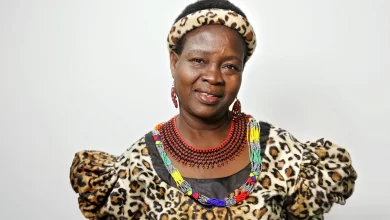‘Touch not my Kabaza, do my votes no harm’
At the expiry of the amnesty on duty given to Kabaza motorcyclists on June 30 2025, it is hoped that all Kabaza taxis will have been cleared with the Malawi Revenue Authority (MRA) and registered in Malawi Traffic Information System (Maltis).
This is likely to improve law enforcement as it would be easy to track down operators and owners of motorcycles operating outside the law. Consequently, this could improve safety of riders and their passengers.

But there is some scepticism whether government is really determined to deal with the Kabaza chaos once and for all.
The rate of accidents has got the attention of President Lazarus Chakwera and parliamentarians who have all lamented but with little energy the need to change the status quo.
Kabaza operation is free for all; unlicensed motorists, unregistered, and overloaded motorbikes remain rampant.
Statistics from the Department of Road Traffic and Safety Services (DRTSS) show that between 2020 and 2023, Malawi registered 4 566 kabaza-related accidents that caused 472 deaths, translating to 118 fatalities annually or 10 per month.
In August 2022, during his tour of the Orthopedic Department at Kamuzu Central Hospital (KCH), Chakwera said he was concerned to learn that 75 percent of the cases at the time were from Kabaza-related crashes.
The President said there was a need for the country to start regulating motorcycles to reduce road accidents. Little has changed from that day.
In November 2023, Parliamentary Committee on Health chairperson Mathews Ngwale, who is also Chiradzulu West parliamentarian, tabled a motion in the august House aimed at curbing the rising number of Kabaza accidents.
During debate in the House, legislators agreed that Kabaza was a menace and there was need for improved regulation. Even that word has not translated to anything meaningful.
Speaking during the Fourth Global Ministerial Conference on Road Safety, in Marrakesh, Morocco, in February this year, Minister of Transport Jacob Hara made another commitment that is yet to pass.
Said Hara: “We commit to not just enforce the mandatory two helmets per motorcycle on purchase, but also ensure that all motorcycles plying on Malawi roads shall always have two helmets each every time they operate on our roads”.
Even when statements from high political offices have not yielded results, the Road Safety Alert Foundation (RoSAF), a non –government organisation, in collaboration with Kabaza associations and law enforcing agencies have launched a campaign to flush out all motorcycle taxis operating outside the law from June 30 2025.
At the launch of the campaign in Lilongwe last month, debate ensued on why the lawlessness in the Kabaza sector has prevailed in the face of all political commitments.
“Honestly, there is political interference in law enforcement. When police seize these motorcycles there are always directives from above to release those largely because owners are people with connections,” said one of the participants at this meeting who opted for anonymity.
This claim ties well with the findings of a 2023 study which revealed that 70 percent of motorcycle taxis were owned by the working class who include the police and Malawi Defence Force (MDF) officers – making law enforcement literally difficult.
Another argument is that the ruling class is unwilling to enforce the law for fear of antagonising the Kabaza community which are potential votes.
“When politicians hear that there are more than 2.2 million registered members of Kabaza associations, they see votes; hence law enforcement suffers,” stated another official from government during this discussion who also opted to have their name out for fear of reprisals.
The failure of speakers to identify themselves during interviews speaks volumes of the political sensitivity surrounding Kabaza.
In 2021, after police launched a clean-up campaign of illegal Kabaza operators and confiscated thousands of motorcycles, the then minister of Homeland Security Richard Chimwendo Banda, facilitated the release of the motor vehicles and gave the operators six months to clear with MRA. It never worked.
Besides this four month-amnesty, the government has negotiated with driving schools to offer Kabaza operations lessons at a reduced rate and has offered to facilitate a deal where Kabaza owners or operators can purchase helmets on credit with the government as a guarantor.
With elections fast approaching, it will be interesting if indeed government will have the courage to flush out non-compliant operators.
RoSAF executive director Joel Jere said their strategy can work because it is led by Kabaza associations. He said with all the incentives, they do not expect more excuses.
“Government has done its part; we have to do our part. Fortunately this is led by Kabaza associations themselves who will lead the campaign to flush out non-compliant ones,” said Jere.
Director of Social Welfare for Macokasa, Moses Nchenje, said the government has been responsive to their needs; hence, there are no more excuses from their members.
“In any case the government is supportive and as Macokasa we are on the ground sensitising our members to seize these opportunities” said Nchenje who also indicated that Macokasa is also working to establish operating places for Kabaza in cities with Lilongwe as a pilot.
“The purpose is to improve our organisation. We are, together with the government, working to improve on how we should do our business in the interest of the people we serve,” added Ncheje.
It is not clear how many have registered during this amnesty as MRA has not been forthcoming to share this information.
A DRTSS’ principal transport officer doubted the practicality of registering all motorcycles in the four-month amnesty due to lack of capacity.
“We only have one piece of equipment. We wish we had a number of them. What we have agreed with Kabaza associations is that come 30th of June there should be no Kabaza plying business without registration. To me this is not practical,” said the officer.





